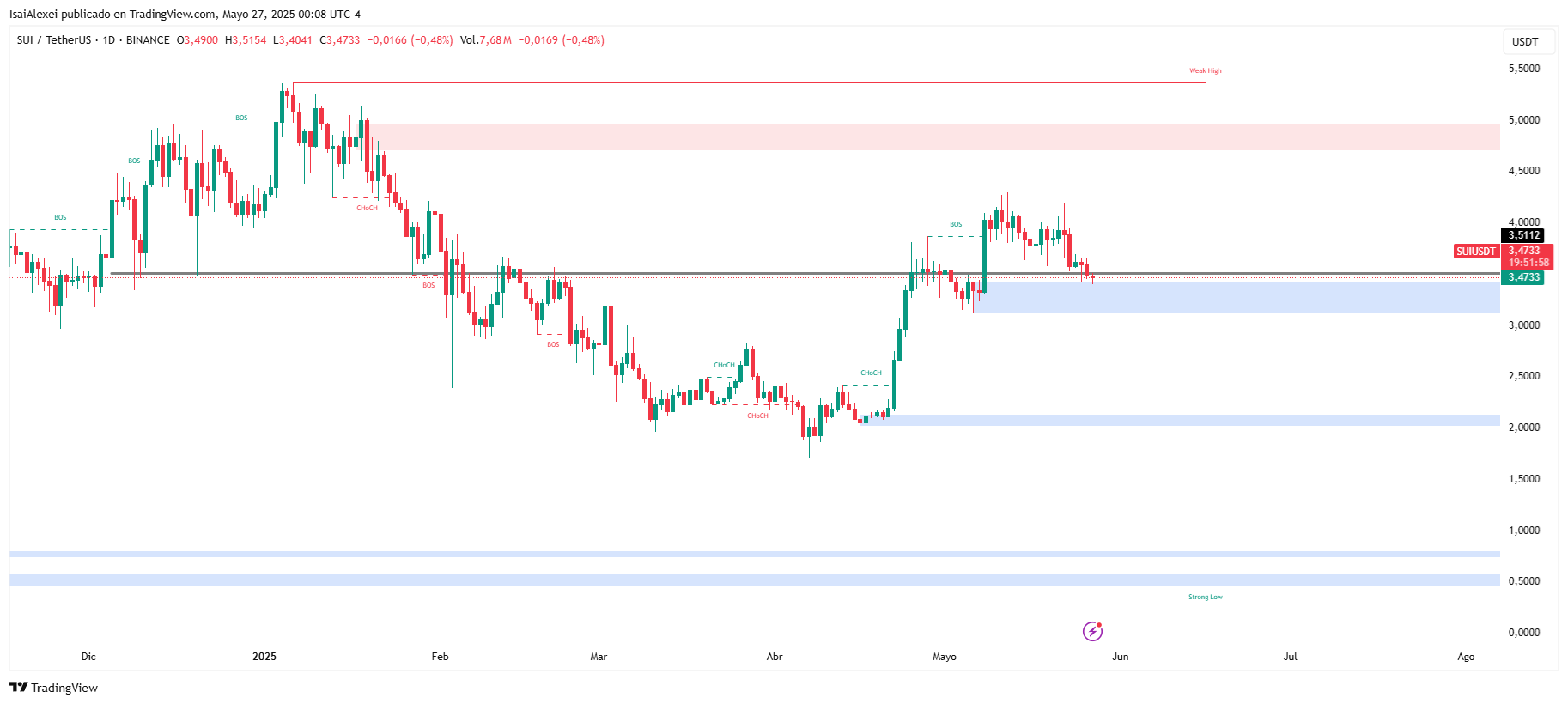
- Sui commits $10M to audits, bounties, and tools after a $223M Cetus exploit caused by AMM math library flaws.
- $162M frozen, $60M bridged to Ethereum; SUI price dropped 10%, TVL fell from $2.1B to $1.5B.
The Sui Network has pledged $10 million to bolster security across its ecosystem after a $223 million exploit targeted Cetus Protocol, a decentralized exchange (DEX) operating on its blockchain. The breach, which occurred on May 22, exposed vulnerabilities in Cetus’s proprietary code rather than Sui’s underlying infrastructure, yet prompted swift action to restore user confidence.

We’re kicking this off by committing to spend an additional $10M on security initiatives. These funds will be spent on audits, bug bounty programs, formal verification, and other ways to harden Sui — we’ll figure out the details in collaboration with our developer community.
— Sui (@SuiNetwork) May 26, 2025
Exploit Details and Immediate Fallout
Attackers exploited an arithmetic overflow flaw in Cetus’s automated market maker (AMM) functions, draining funds from liquidity pools. Sui validators froze $162 million of the stolen assets, but $60 million had already been transferred to Ethereum. The incident triggered a 10% drop in Sui’s native token (SUI) and reduced the network’s total value locked (TVL) from $2.1 billion to $1.5 billion within days.
Sui’s $10 million initiative will fund third-party audits, bug bounty programs, and formal verification tools to preempt future risks. The network emphasized collaboration with developers to fortify decentralized applications (dApps) and promote secure coding practices. “We’re hardening Sui’s defenses through shared accountability” the team stated, underscoring plans to support open-source libraries and expand developer education.

Governance Debate and Community Backlash
A proposal to return frozen funds via on-chain voting sparked criticism, reviving debates about blockchain immutability and validator influence. Critics likened the move to Ethereum’s contentious 2016 DAO fork, arguing it risks centralization. Sui defended the vote as a community-driven solution, though tensions persist over balancing rapid response with decentralized principles.
Cetus has offered a $6 million reward for the return of remaining funds, while Sui added a $5 million bounty for information identifying the attacker. These efforts aim to mitigate losses and deter future exploits.
The path forward is clear: security cannot be an afterthought. For Sui, $10 million is not just an investment—it’s a necessity.

As of today, the price of SUI is $3.47, reflecting a 4.1% increase over the last 24 hours. The token is ranked #14 in market capitalization with a circulating supply of over 3.3 billion tokens and a total valuation exceeding $11.5 billion.
Despite its recent daily recovery, SUI has experienced a 9.8% decline over the past week, indicating short-term bearish pressure. Trading volume has also dropped by more than 10%, suggesting decreased market activity.

Technically, SUI is trading within a range of $3.43 to $3.65, and if momentum persists, it could attempt to break above the $3.70 resistance. However, failure to hold above $3.40 may expose it to a short-term dip.
The token remains significantly higher than its all-time low of $0.3648, showing robust long-term growth, although it’s still down around 35% from its all-time high of $5.35.
The post Sui’s $10M Security Overhaul Post-$223M Exploit: Can It Prevent Another Cetus-Style Crisis? appeared first on ETHNews.


